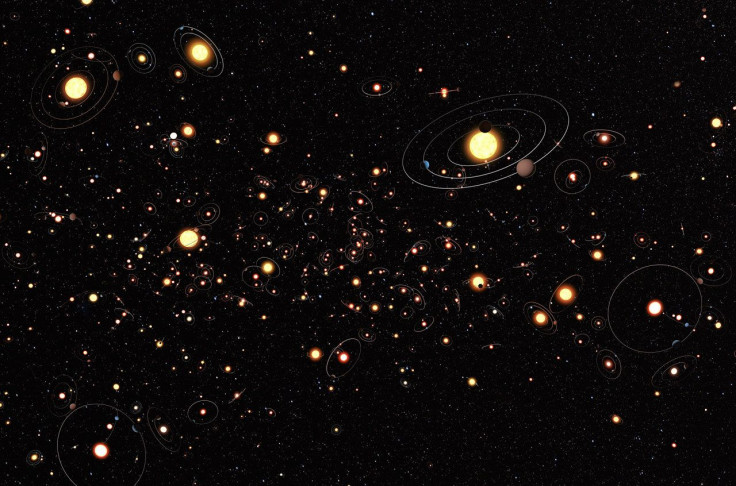Exoplanet Search Reaches 5,000 Milestone; NASA Animation Turns 30-Year Discovery To Music [Watch]
KEY POINTS
- There are 5,005 confirmed exoplanets and more than 8,000 candidates as of March 21
- NASA shared an animation where the exoplanets are represented by musical notes
- The animation shows the three decades of discovering exoplanets
The search for exoplanets has reached an important milestone as NASA's count has now gone past the 5,000-mark. The agency shared an animation translating the discoveries into sound, with the resulting music representing 30 years of discoveries.
Exoplanets are planets that lie beyond our solar system, and NASA confirmed Monday that the count of confirmed exoplanets has reached the 5,000-mark. From the beginning of the search in the 1990s, NASA's exoplanet data counts 5,005 confirmed exoplanets and 8,709 more candidates by Monday.
According to NASA, the "planetary odometer" turned to reach this important milestone Monday when a batch of 65 exoplanets was added to the NASA Exoplanet Archive.
COSMIC MILESTONE ALERT! Our list of confirmed planets beyond our solar system just ticked past 5K, representing a 30-year journey of discovery led by @NASA space telescopes. Findings include small, rocky worlds like Earth & gas giants larger than Jupiter. https://t.co/Oh0LSVIStP pic.twitter.com/3SzhPn4m49
— NASA JPL (@NASAJPL) March 21, 2022
"It's not just a number," Jessie Christiansen, the science lead for the archive and a research scientist with the NASA Exoplanet Science Institute at Caltech, said in the NASA news release. "Each one of them is a new world, a brand-new planet. I get excited about every one because we don't know anything about them."
NASA also shared a rather unique animation and sonification of the data that shows the 30-year journey that led to the 5,000-mark milestone. In it, each exoplanet in the NASA data is represented by a circle, revealing its position in the sky and the size of its orbit. Each one is also turned into a sound. Those with higher pitches are the ones that orbit their host stars more quickly while those with lower notes are the planets that take longer to complete an orbit.
In the animation, the resulting music shows how the 30-year journey began a bit slow but eventually picked up its pace. Starting from 1991 when the exoplanet count was still at zero, the notes came in a few at a time beginning 1992 then eventually came much faster as the years went on, turning the discoveries of planets beyond our solar system into sweet-sounding music.
"I get a real feeling of satisfaction, and really of awe at what's out there," astronomer William Borucki, the principal investigator of the Kepler Space Telescope, said, as per NASA. "None of us expected this enormous variety of planetary systems and stars. It's just amazing."
Citizen scientists have also had their part in these discoveries, with quite a few exoplanet discoveries having major contributions from them.
In the future, more technologies will not only search for more exoplanets but will also begin to get to know them better, NASA noted. They include the James Webb Space Telescope launched earlier this year, the Nancy Grace Roman Space Telescope set to launch in 2027 and the European Space Agency's ARIEL mission to launch in 2029.

© Copyright IBTimes 2024. All rights reserved.






















